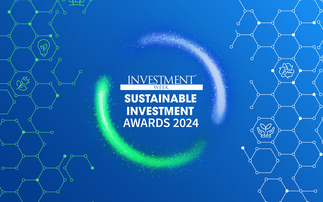Pedro Gonçalves looks at how the significant variance in the number of methodologies that have emerged in recent years is hampering asset managers.
The race to net zero presents an opportunity for ESG-engaged, active asset managers. But concerns persist about the reliability of data metrics measuring carbon output.
Data availability holding back financial services firms' climate transition plans
The total number of fund houses making new, enhanced commitments to support the goal of net zero greenhouse gas emissions by 2050 or sooner currently stands at 87, representing $37trn AUM, more than a third of global assets under management, according to the latest Net Zero Asset Managers initiative figures.
However, there can be vast a variance in the plethora of methodologies that have emerged in recent years measuring companies' progress towards net zero.
To measure the true carbon footprint of an investment portfolio, scope one (direct), scope two (indirect) and scope three (also indirect) emissions of any underlying holdings need to be determined, according to Edwin Whitehead, senior vice president of responsible investment at Redington.
However, there is currently no way of measuring all three scopes accurately, Whitehead highlighted.
"While it is an aim I believe all investors should be striving for, unfortunately it is simply not possible at the moment," he said.
"This is an extremely challenging thing to measure and assess. To know if a company is on the right path or not, there is a lot of uncertainty about that," James Hay, investment associate at MainStreet Partners, told Investment Week.
Net zero or greenwash?
Net zero commitments across the private sector face growing pushback from some campaigners and scientists who claim the long-term targets provide a cover for firms to continue polluting in the short term.
Brookfield, a Canadian company that employs UN climate finance envoy Mark Carney as vice-chair, has invested billions of dollars in fossil fuel projects.
The former Bank of England governor argued Brookfield is "net zero across its $575bn asset portfolio".
Carney said that Brookfield has achieved net-zero status because "we have this enormous renewables business that we have built up and all of the avoided emissions that come with that".
Hay warned: "I think there is a massive reputational cost to making a pledge if they are not actually meeting it."
Counting the carbs
The data is far from perfect, with the availability of detailed emissions data and other sustainability metrics varying materially across equities and fixed income asset classes as well as by jurisdiction, due to the size of businesses and ownership structures.
"Challenges remain in accurately measuring emissions data across investment strategies," Gareth Hall, portfolio manager and ESG specialist at Barings, said.
But the race towards carbon neutrality is creating opportunities for those active managers that are able to navigate the data.
"There is a lot of opportunity to identify mispriced assets, companies that might be more sustainable than the market really appreciates now," Eric van Nostrand, head of sustainable investment at BlackRock, said.
New climate research house to focus on net zero transition
The manager added the amount of climate data has grown in recent years, but there is a need for standardisation.
"It is really hard to measure different entities that try to measure scope three emissions and do it in very different ways and tell very different stories," he explained.
"Active managers have a unique ability now to sift through some of that different data and in a competitive marketplace have different attempts at identifying who is going to be the best out performer on sustainability."















